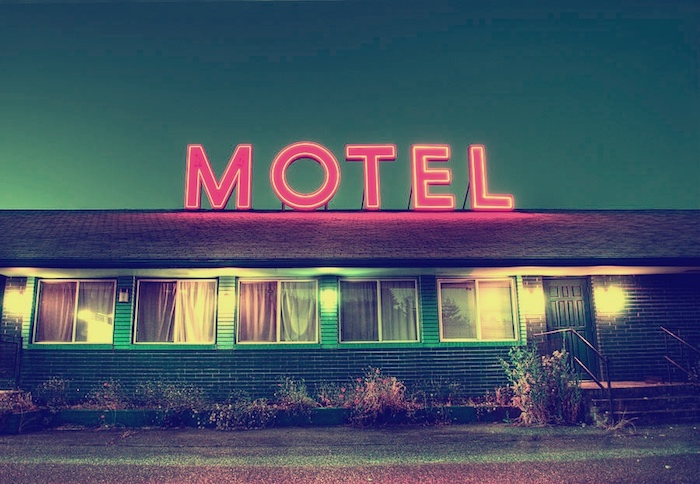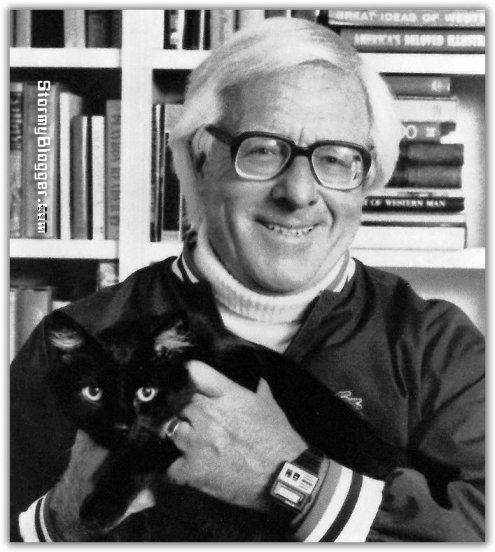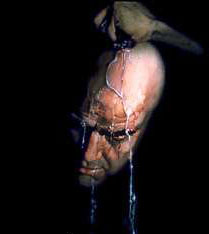 You’ve probably already heard that wonderfully creepy urban tale about a teenage boy and girl making out in a car in some Lovers Lane in Anytown, USA, and how the boy starts telling the girl of the “Hook Murders” in the area, whereby amorous teens are being killed by an insane, escaped killer with a hook for a hand. Perhaps not the smartest move on the boy’s part, as his girlfriend gets all distracted by fear, going from initial anxiety to eventual near-hysteria, resisting his advances and demanding they leave that instant. Which he eventually does. He’s all bummed, they bicker on the way back, arrive at her place, she jumps out, slams the door…. and screams. He runs around to her side of the vehicle…. and sees what she sees: a single bloody hook dangling from the door handle.
You’ve probably already heard that wonderfully creepy urban tale about a teenage boy and girl making out in a car in some Lovers Lane in Anytown, USA, and how the boy starts telling the girl of the “Hook Murders” in the area, whereby amorous teens are being killed by an insane, escaped killer with a hook for a hand. Perhaps not the smartest move on the boy’s part, as his girlfriend gets all distracted by fear, going from initial anxiety to eventual near-hysteria, resisting his advances and demanding they leave that instant. Which he eventually does. He’s all bummed, they bicker on the way back, arrive at her place, she jumps out, slams the door…. and screams. He runs around to her side of the vehicle…. and sees what she sees: a single bloody hook dangling from the door handle.
Creeped out? Good, because I am, and a good haunting is no fun alone.
So, already predisposed to think of hooks, I was struck by a thought the other day. This is by no means a common event, so I don’t want to minimize its surprise value. Along the lines of Barry Eisler’s recent advice to read like a writer, I was considering opening lines—of both short fiction and longer—and how well they draw the reader in when skilfully crafted. But my mini epiphany occurred at the moment I realised an opening line isn’t always a hook… although it probably should be. Certainly in shorter fiction. But even in a novel, you might really want to get your hook in no later than the first paragraph.
There are many forms available for your narrative hook, from similes and metaphors to character dilemmas and overt questions, even quotes and anecdotes. But the real world of books contains some incredible examples of opening hooks, thirty of which I’ll now itemize here for your enjoyment (the numerical order isn’t significant). Some are long and involved, although most are short and, at least on the surface, simply describe something essential to the story, without adornment or prevarication (yet don’t let that fool you; some of these writers are wily foxes). I’ll throw in the odd stray opinion as I go, usually as to why I find the words so damn compelling.
30. “The candleflame and the image of the candleflame caught in the pierglass twisted and righted when he entered the hall and again when he shut the door.” — Cormac McCarthy, All the Pretty Horses
(This immediately alerts the reader to two things: McCarthy will invent compound words like there’s no tomorrow, and the vision behind this is going to be both cinematic and literary.)
29. “As Gregor Samsa awoke one morning from uneasy dreams he found himself transformed in his bed into a gigantic insect.” — Franz Kafka, Metamorphosis
(Sounds almost like a children’s fable, doesn’t it? Uh, keep reading. Which you almost can’t help doing after reading that particular opener. Which is the point.)
28. “Far out in the uncharted backwaters of the unfashionable end of the Western Spiral arm of the Galaxy lies a small unregarded yellow sun.” — Douglas Adams, The Hitchhiker’s Guide to the Galaxy
(With one word, “unfashionable”, Adams transforms this opener from potential mundanity into something richly comedic.)
27. “Mrs. Dalloway said she would buy the flowers herself.” — Virginia Woolf, Mrs. Dalloway
(I have to admit, some of these opening lines take on incredible poignancy and significance in hindsight, via an almost insane level of initial understatement.)
26. “They murdered him.” — Robert Cormier, The Chocolate War
(I love it when someone cuts right to the chase. Or does he? He actually gives us almost nothing. Who is the victim? Who are “they”? We simply have to read on.)
25. “It was the day my grandmother exploded.” — Iain Banks, The Crow Road
(Um. Okay. Intriguing, you have to say. And who, aside from volatile, unstable grandmothers, won’t read on?)
24. “Call me Ishmael.” — Herman Melville, Moby-Dick
(Again, simple. But why call me Ishmael? Is that not the protagonist’s name? If it were, he’d surely have written “My name is Ishmael.” What trickery is afoot here? Oh, and yes, the novel’s title really is hyphenated, I Googled.)
23. “Like the brief doomed flare of exploding suns that registers dimly on blind men’s eyes, the beginning of the horror passed almost unnoticed; in the shriek of what followed, in fact, was forgotten and perhaps not connected to the horror at all.” — William Peter Blatty, The Exorcist
(Well, I got chills.)
22. “We were somewhere around Barstow on the edge of the desert when the drugs began to take hold.” — Hunter S. Thompson, Fear and Loathing in Las Vegas
(Could be another example of an opening line taking on all the subsequent cultural baggage unleashed not simply by the book itself, but by the movie adaptations and HST’s real life exploits. Still good, though.)
21. “On my naming day when I come 12 I gone front spear and kilt a wyld boar he parbly ben the las wyld pig on the Bundel Downs any how there hadnt ben none for a long time befor him nor I aint looking to see none agen.” — Russell Hoban, Riddley Walker
(One of my personal favourites. Post-apocalyptic and primitivist, another coming-of-age fable for grown up children. You know he’s gonna make you work but if you can grok these opening words even a little, you know the rewards will be there for you.)
20. “Tyler gets me a job as a waiter, after that Tyler’s pushing a gun in my mouth and saying, the first step to eternal life is you have to die.” — Chuck Palahniuk, Fight Club
(Well, if you love words and storytelling, you just can’t fault that as an opener, can you?)
19. “In the beginning, God created the heavens and the earth.” — Genesis, The Holy Bible
(Well, duh. They sound pretty sure of that. No pyrotechnics, though. And, given the stakes, probably the most understated opening line ever.)
18. “Dog carcass in alley this morning, tire tread on burst stomach. This city is afraid of me. I have seen its true face.” — Alan Moore and Dave Gibbons, Watchmen
(Yeah, it’s a graphic novel, and some of the impact is lost without Gibbons’ artwork, but it’s still an evocative opener.)
17. “The great grey beast February had eaten Harvey Swick alive.” — Clive Barker, The Thief of Always
(Elusive and allusive, Barker’s technique alone will make me read on, even without such a startling metaphor.)
16. “A screaming comes across the sky.” — Thomas Pynchon, Gravity’s Rainbow
(It grabs you in a visceral way, for sure, and it also becomes much clearer as you read on. I do lean toward the succinct openers, it seems. There’s no real warning here of the approaching complexities of Pynchon’s prose.)
15. “The man in black fled across the desert, and the gunslinger followed.” — Stephen King, The Dark Tower: The Gunslinger
(Not only simple, rhythmically pleasing, cinematic even, but it points to something later on that I won’t even elaborate on for fear of spoilers. Just read this series, is all I can say, and this line will return to haunt you, again and again.)
14. “No live organism can continue for long to exist sanely under conditions of absolute reality; even larks and katydids are supposed, by some, to dream. Hill House, not sane, stood by itself against its hills, holding darkness within; it had stood so for eighty years and might stand for eighty more. Within, walls continued upright, bricks met neatly, floors were firm, and doors were sensibly shut; silence lay steadily against the wood and stone of Hill House, and whatever walked there, walked alone.” — Shirley Jackson, The Haunting of Hill House
(And here’s the exception to my general preference for short and pithy. This is fine writing. And creepy as hell. Those of you who read my post on closing lines might even recognise this. Oh, that “not sane” gets me every time.)
13. “Imagine a ruin so strange it must never have happened.” — Barbara Kingsolver, The Poisonwood Bible
(I love this. If you haven’t read this novel, please let the airy, expectant poetry of this opener convince you to do so. And what an audacious line to use in a fictional work.)
12. “When he was nearly thirteen, my brother Jem got his arm badly broken at the elbow.” — Harper Lee, To Kill a Mockingbird
(Again, this contains information that is essential, but it doesn’t even begin to scratch the surface of the events behind it. A badly broken elbow may in itself seem a weighty topic to such a very young narrator, but… yeah, read on.)
11. “Mother died today. Or, maybe, yesterday; I can’t be sure.” — Albert Camus, The Stranger
(Okay. In the merest handful of words, Camus suggests dislocation, dissociation and indifference, or some awful combination of them all. If you don’t want to read on from here, your curiosity engine must have seized on you.)
10. “In a hole in the ground there lived a hobbit.” — J. R. R. Tolkien, The Hobbit
(Up there with the Bible, in its way. What the hell is a hobbit? Did he just misspell “rabbit?” Oh, he’s a wily one, he knows exactly what you’re thinking.)
9. “It can hardly be a coincidence that no language on earth has ever produced the expression ‘As pretty as an airport.’” — Douglas Adams, The Long Dark Tea-Time of the Soul
(Ha! When in doubt, crack your audience up from the get-go. Dry, sardonic, just very funny, even the title itself.)
8. “The sky above the port was the colour of television, tuned to a dead channel.” — William Gibson, Neuromancer
(Perfect use of metaphor, and so apt in a book that had such a huge influence on the Matrix movies.)
7. “It was a bright cold day in April, and the clocks were striking thirteen.” — George Orwell, Nineteen Eighty-Four
(It’s all about that “thirteen”, isn’t it? I mean, wha—? This guy got a thing about numbers?)
6. “When he woke in the woods in the dark and the cold of the night he’d reach out to touch the child sleeping beside him.” — Cormac McCarthy, The Road
(Again, more poignant in retrospect, but very much in keeping with the quietly relentless monochrome tone of the rest of the novel. That seed of love is there in the very first sentence. Carrying the fire.)
5. “All this happened, more or less.” — Kurt Vonnegut, Slaughterhouse-Five
(Thanks Kurt. So did it or didn’t it? Now we must find out, you sly dog, you.)
4. “First of all, it was October, a rare month for boys.” — Ray Bradbury, Something Wicked This Way Comes
(Brilliant. Making “first” literally the first word, it’s almost a step on from “once upon a time”. And again, plenty of information in so few words.)
3. “I did not kill my father, but I sometimes felt I had helped him on his way.” — Ian McEwan, The Cement Garden
(This is a remarkably accomplished novel considering it was McEwan’s debut, and this line shows all the assurance that, as a pure technician, he’s never relinquished.)
2. “Context is everything. Dress me up and see. I’m a carnival barker, an auctioneer, a downtown performance artist, a speaker in tongues, a senator drunk on filibuster.” — Jonathan Lethem, Motherless Brooklyn
(This is intriguing enough… and then you get to the very next line, which is italicized, and it’s like the sun emerges from behind a cloud. Context, indeed. Wanna know what it is? Ask me in the comments section.)
1. “Ten thousand bombs had landed, and I was waiting for George.” — Rawi Hage, DeNiro’s Game
(I like this juxtaposition of the ordinary with the apparently extraordinary. This is a very beautifully written novel, incidentally.)
Oh, and speaking of strange juxtapositions, here’s a bonus pair:
“It is a truth universally acknowledged, that a single man in possession of a good fortune must be in want of a wife.” — Jane Austen, Pride and Prejudice
“It is a truth universally acknowledged that a zombie in possession of brains must be in want of more brains.” — Jane Austen and Seth Grahame-Smith, Pride and Prejudice and Zombies
* * * * *
A version of this post appeared on Indies Unlimited on August 17, 2012. David Antrobus also writes for Indies Unlimited and BlergPop. Be sure to check out his work there if you like what you read here.
 David Antrobus Posted on
David Antrobus Posted on  Friday, November 2, 2018 at 8:29PM
Friday, November 2, 2018 at 8:29PM  “These dangers arrive quickly, just like death” — Marina Abramovic
“These dangers arrive quickly, just like death” — Marina Abramovic







